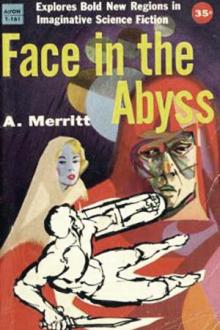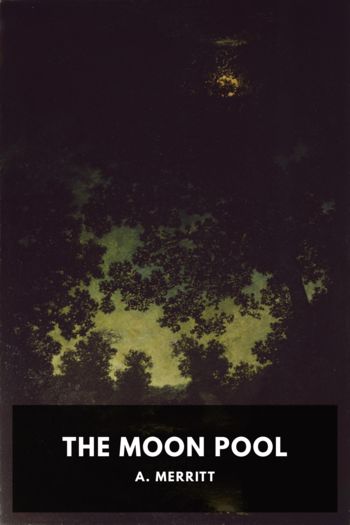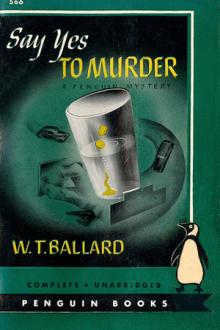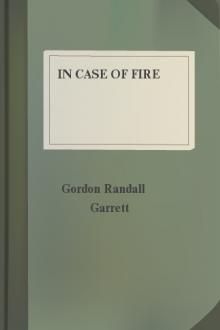The Face in the Abyss - Abraham Merritt (romance novel chinese novels .txt) 📗

- Author: Abraham Merritt
- Performer: -
Book online «The Face in the Abyss - Abraham Merritt (romance novel chinese novels .txt) 📗». Author Abraham Merritt
The Face in the Abyss
A. E. Merritt
CHAPTER I. Suarra
NICHOLAS GRAYDON ran into Starrett in Quito. Rather, Starrett sought him out there. Graydon had often heard of the big West Coast adventurer, but their trails had never crossed. It was with lively curiosity that he opened his door to his visitor.
Starrett came to the point at once. Graydon had heard the legend of the treasure train bringing to Pizarro the ransom of the Inca Atahualpa? And that its leaders, learning of the murder of their monarch by the butcher-boy Conquistador, had turned aside and hidden the treasure somewhere in the Andean wilderness?
Graydon had heard it, hundreds of times; had even considered hunting for it He said so. Starrett nodded.
“I know where it is,” he said.
Graydon laughed.
In the end Starrett convinced him; convinced him, at least, that he had something worth looking into.
Graydon rather liked the big man. There was a bluff directness that made him overlook the hint of cruelty in eyes and jaw. There were two others with him, Starrett said, both old companions. Graydon asked why they had picked him out. Starrett bluntly told him—because they knew he could afford to pay the expenses of the expedition. They would all share equally in the treasure. If they didn’t find it, Graydon was a first-class mining engineer, and the region they were going into was rich in minerals. He was practically sure of making some valuable discovery on which they could cash in.
Graydon considered. There were no calls upon him. He had just passed his thirty-fourth birthday, and since he had been graduated from the Harvard School of Mines eleven years ago he had never had a real holiday. He could well afford the cost. There would be some excitement, if nothing else.
After he had looked over Starrett’s two comrades—Soames, a lanky, saturnine, hard-bitten Yankee, and Dancret, a cynical, amusing little Frenchman—they had drawn up an agreement and he had signed it.
They went down by rail to Cerro de Pasco for their outfit, that being the town of any size closest to where their trek into the wilderness would begin. A week later with eight burros and six arrieros, or packmen, they were within the welter of peaks through which, Starrett’s map indicated, lay their road.
It had been the map which had persuaded Graydon. It was no parchment, but a sheet of thin gold quite as flexible. Starrett drew it out of a small golden tube of ancient workmanship, and unrolled it. Graydon examined it and. was unable to see any map upon it—or anything else. Starrett held it at a peculiar angle—and the markings upon it became plain.
It was a beautiful piece of cartography. It was, in fact, less a map than a picture. Here and there were curious symbols which Starrett said were signs cut upon the rocks along the way; guiding marks for those of the old race who would set forth to recover the treasure when the Spaniards had been swept from the land.
Whether it was clew to Atahualpa’s ransom hoard or to something else—Graydon did not know. Starrett said it was. But Graydon did not believe his story of how the golden sheet had come into his possession. Nevertheless, there had been purpose in the making of the map, and stranger purpose in the cunning with which the markings had been concealed. Something interesting lay-at the end of that trail.
They found the signs cut in the rocks exactly as the sheet of gold had indicated. Gay, spirits high with anticipation, three of them spending in advance their share of the booty, they followed the symbols. Steadily they were led into the uncharted wilderness.
At last the arrieros began to murmur. They were approaching, they said, a region that was accursed, the Cordillera de Carabaya, where only demons dwelt Promises of more money, threats, pleadings, took them along a little further. One morning the four awakened to find the arrieros gone, and with them half the burros and the major portion of their supplies.
They pressed on. Then the signs failed them. Either they had lost the trail, or the map which had led them truthfully so far had lied at the last.
The country into which they had penetrated was a curiously lonely one. There had been no sign of Indians since more than a fortnight before, when they had stopped at a Quicha village and Starrett had gotten mad drunk on the fiery spirit the Quichas distill. Food was hard to find. There were few animals and fewer birds.
Worst of all was the change which had come over Graydon’s companions. As high as they had been lifted by their certitude of success, just so deep were they in depression. Starrett kept himself at steady level of drunkenness, alternately quarrelsome and noisy, or brooding in sullen rage.
Dancret was silent and irritable. Soames seemed to have come to the conclusion that Starrett, Graydon and Dancret had combined against him; that they had either deliberately missed the trail or had erased the signs. Only when the pair of them joined Starrett and drank with him the Quicha brew with which they had laden one of the burros did the three relax. At such times Graydon had the uneasy feeling that all were holding the failure against him, and that his life might be hanging on a thin thread.
The day that Graydon’s great adventure really began, he was on his way back to the camp. He had been hunting since morning. Dancret and Soames had gone off together on another desperate search for the missing marks.
Cut off in mid-flight, the girl’s cry came to him as the answer to all his apprehensions; materialization of the menace toward which his vague fears had been groping since he had left Starrett alone at the camp, hours ago. He had sensed some culminating misfortune close—and here it was! He broke into a run, stumbling up the slope to the group of gray-green algarrobas, where the tent was pitched.
He crashed through the thick undergrowth to the clearing.
Why didn’t the girl cry out again, he wondered. A chuckle reached him, thick, satyr-toned.
Half crouching, Starrett was holding the girl bow fashion over one knee. A thick arm was clenched about her neck, the fingers clutching her mouth brutally, silencing her; his right hand fettered her wrists; her knees were caught in the vise of his bent right leg.
Graydon caught him by the hair, and locked his arm under his chin. He drew his head sharply back.
“Drop her!” he ordered.
Half paralyzed, Starrett relaxed—he writhed, then twisted to his feet.
“What the hell are you butting in for?”
His hand struck down toward his pistol. Graydon’s fist caught him on the point of the jaw. The half-drawn gun slipped to the ground and Starrett toppled over.
The girl leaped up, and away.
Graydon did not look after her. She had gone, no doubt, to bring down upon them her people, some tribe of the fierce Aymara whom even the Incas of old had never quite conquered. And who would avenge her in ways that Graydon did not like to visualize.
He bent over Starrett. Between the blow and the drink he would probably be out for some time. Graydon picked up the pistol. He wished that Dancret and Soames would get back soon to camp. The three of them could put up a good fight at any rate… might even have a chance to escape… but they would have to get back quickly… the girl would soon return with her avengers… was probably at that moment telling them of her wrongs. He turned—
She stood there, looking at him.
Drinking in her loveliness, Graydon forgot the man at his feet—forgot all else.
Her skin was palest ivory. It gleamed through the rents of the soft amber fabric, like thickest silk, which swathed her. Her eyes were oval, a little tilted, Egyptian in the wide midnight of her pupils. Her nose was small and straight; her brows level and black, almost meeting. Her hair was cloudy, jet, misty and shadowed. A narrow fillet of gold bound her low broad forehead. In it was entwined a sable and silver feather of the caraquenque—that bird whose plumage in lost centuries was sacred to the princesses of the Incas alone.
Above her elbows were golden bracelets, reaching almost to the slender shoulders. Her little high-arched feet were shod with high buskins of deerskin. She was lithe and slender as the Willow Maid who waits on Kwannon when she passes through the World of Trees pouring into them new fire of green life.
She was no Indian… nor daughter of ancient Incas … nor was she Spanish… she was of no race that he knew. There were bruises on her cheeks—the marks of Star rett’s fingers. Her long, slim hands touched them. She spoke—in the Aymara tongue.
“Is he dead?”
“No,” Graydon answered.
In the depths of her eyes a small, hot flame flared; he could have sworn it was of gladness.
“That is well! I would not have him die—” her voice became meditative—“at least—not this way.”
Starrett groaned. The girl again touched the bruises on her cheek.
“He is very strong,” she murmured.
Graydon thought there was admiration in her whisper; wondered whether all her beauty was, after all, only a mask for primitive woman worshiping brute strength. “Who are you?” he asked.
She looked at him for a long, long moment.
“I am—Suarra,” she answered, at last.
“But where do you come from? What are you?” he asked again. She did not choose to answer these questions.
“Is he your enemy?”
“No,” he said. “We travel together.”
“Then why—” she pointed again to the outstretched figure—“why did you do this to him? Why did you not let him have his way with me?”
Graydon flushed. The question, with all its subtle implications, cut.
“What do you think I am?” he answered, hotly. “No man lets a thing like that go on!”
She looked at him, curiously. Her face softened. She took a step closer to him. She touched once more the bruises on her cheek.
“Do you not wonder,” she said, “now do you not wonder why I do not call my people to deal him the punishment he has earned?”
“I do wonder,” Graydon’s perplexity was frank. “I wonder indeed. Why do you not call them—if they are close enough to hear?”
“And what would you do were they to come?”
“I would not let them have him—alive,” he answered. “Nor me.”
“Perhaps,” she said, slowly—“perhaps that is why I do not call.”
Suddenly she smiled upon him. He took a swift step toward her. She thrust out a warning hand. “I am—Suarra,” she said. “And I am—Death!” A chill passed through Graydon. Again he realized the alien beauty of her. Could there be truth in these legends of the haunted Cordillera? He had never doubted that there was something real behind the terror of the Indians, the desertion of the arrieros. Was she one of its spirits, one of its—demons? For an instant the fantasy seemed no fantasy. Then reason returned. This girl a demon! He laughed.
“Do not laugh,” she said. “The death I mean is not such as you who live beyond the high rim of our hidden land know. Your body may live on—yet it is death and more than death, since it





Comments (0)